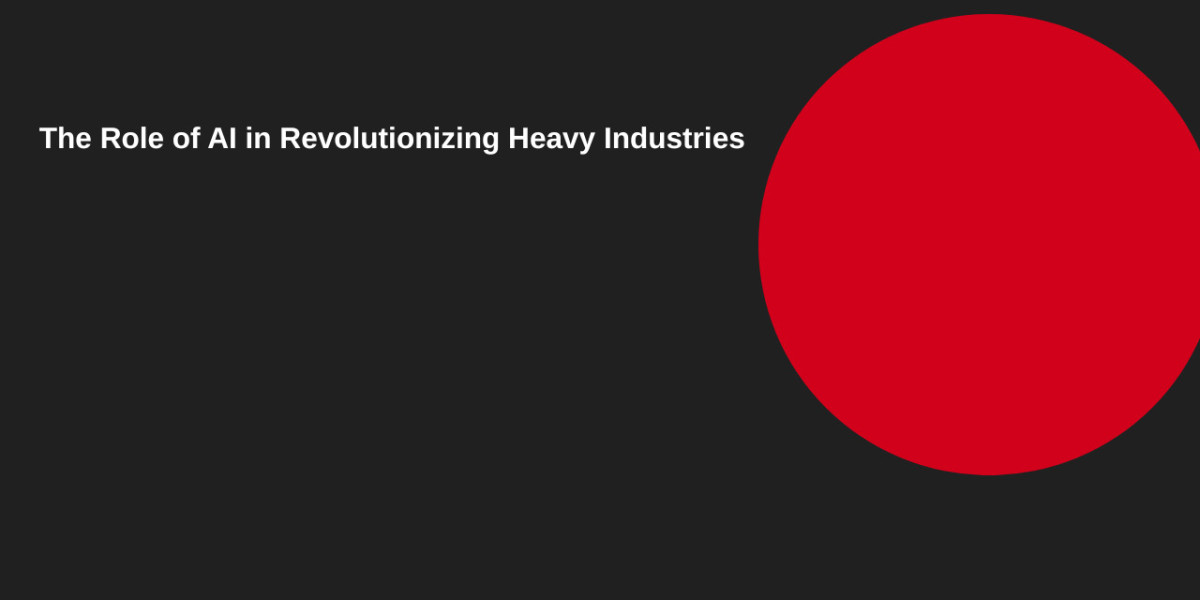Heavy industries—such as manufacturing, mining, construction, and energy—are often seen as traditional sectors dependent on physical labor and mechanical power. But in today’s digital age, Artificial Intelligence (AI) is becoming a transformative force, reshaping how these industries operate from the ground up. From improving operational reliability to optimizing safety and sustainability, AI is proving essential in making heavy industries more intelligent, efficient, and future-ready.
Predictive Intelligence: Redefining Equipment and Maintenance
In heavy industry, machinery is the heart of production. Any downtime can lead to massive financial losses, missed deadlines, and disrupted supply chains. Traditional maintenance methods, based on fixed schedules or post-failure repairs, are increasingly being replaced by AI-powered predictive maintenance systems. These systems use real-time sensor data, machine learning algorithms, and historical patterns to anticipate issues before they occur.
For instance, in a mining operation, AI algorithms can analyze vibration, temperature, and performance data from trucks, drills, or conveyor belts. If a component is about to fail, the system alerts the operators well in advance, allowing them to fix the problem without halting production. This predictive capability significantly reduces unplanned downtime and repair costs, while also extending the lifespan of expensive equipment.
AI also brings optimization to production processes. In manufacturing, AI models can analyze production line data to identify bottlenecks, reduce material waste, and fine-tune operations for maximum throughput. These improvements not only boost efficiency but also help companies respond more flexibly to changing demand, raw material availability, and supply chain disruptions.
Another vital contribution of AI is in managing logistics and inventory. Heavy industries often involve complex supply chains where timing and resource availability are critical. AI algorithms can forecast demand, automate procurement decisions, and optimize inventory levels, reducing storage costs and minimizing delays.
Enhancing Safety, Sustainability, and Strategic Decisions
Safety is a constant concern in heavy industries, where workers often operate in hazardous environments. AI-driven solutions are now being deployed to create safer workplaces through real-time monitoring and predictive alerts. Computer vision systems, for example, can detect unsafe behaviors such as workers not wearing protective gear, entering restricted zones, or working too close to machinery. These systems send instant alerts to supervisors, helping prevent accidents before they happen.
Construction sites have also started using AI-powered drones and cameras to monitor project progress, assess risks, and ensure compliance with safety protocols. These tools not only enhance worker safety but also provide accurate data for decision-makers to keep projects on track.
AI is also contributing to the global push for cleaner and more sustainable industrial practices. In energy-intensive sectors like steel or cement production, AI is used to monitor and optimize energy usage. By adjusting operations in real time, AI can reduce fuel consumption, lower emissions, and improve overall environmental performance. This helps industries meet sustainability goals and regulatory standards without sacrificing productivity.
Strategic decision-making has been revolutionized by AI’s ability to process and interpret vast amounts of data. Executives and engineers can use AI-powered dashboards to visualize operational performance, track efficiency metrics, and simulate different production scenarios. In sectors like oil and gas, AI helps determine the most profitable drilling sites by analyzing geological data, market trends, and risk factors.
The result is a smarter, more responsive industrial ecosystem where decisions are based not on guesswork but on real-time intelligence.



